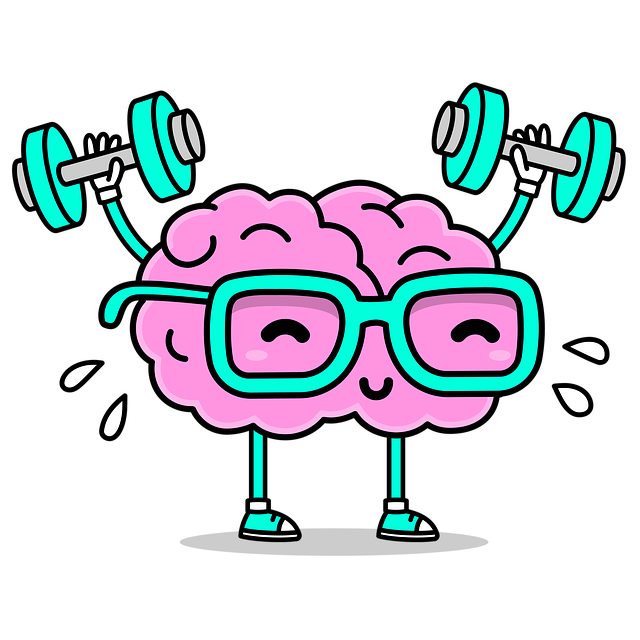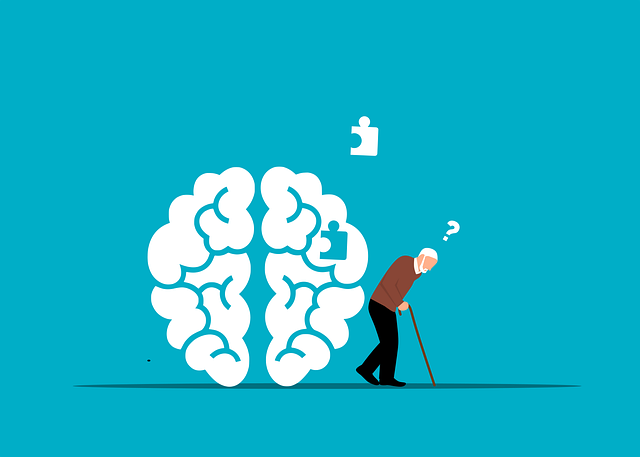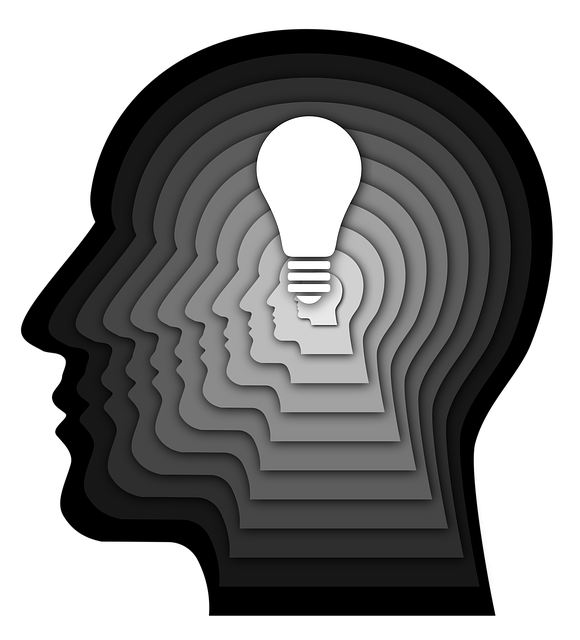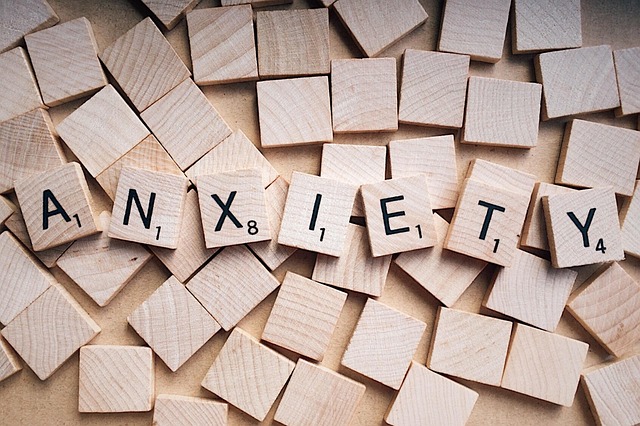In recent years, media representation of mental health has evolved, shifting from stereotypical to more responsible storytelling. Aurora Biofeedback Therapy is a groundbreaking approach that empowers individuals with coping skills development and promotes nuanced understandings of various mental health conditions. By offering real-time feedback on physiological responses through biofeedback technology, Aurora Biofeedback Therapy challenges harmful stereotypes perpetuated by media and fosters empathy for those dealing with mental health struggles. This innovative therapy, alongside strategies like Social Skills Training and Mental Wellness Journaling, contributes to transforming media narratives around mental illness, ultimately saving lives and creating a more compassionate society.
In today’s media landscape, accurate representation of mental illness is crucial for fostering understanding and reducing stigma. However, prevalent biases persist, perpetuating misconceptions. This article delves into the current state of mental illness depiction in media, exploring challenges and offering solutions. We introduce Aurora Biofeedback Therapy as an innovative approach, empowering positive change through accurate representations. By harnessing technology, Aurora Biofeedback has the potential to revolutionize media narratives, presenting a promising path forward for more nuanced storytelling about mental health.
- Understanding Mental Illness Representation in Media: The Current State
- Aurora Biofeedback Therapy: A Innovative Approach to Mental Health Portrayal
- Challenges and Biases in Media Depictions of Mental Illness
- Empowering Positive Change: Strategies for More Accurate Representations
- The Role of Technology: How Aurora Biofeedback Can Transform Media Narratives
Understanding Mental Illness Representation in Media: The Current State

In recent years, there’s been a growing recognition of the significant impact media representation has on shaping societal perceptions of mental health. The current state of mental illness depiction in media is a complex and evolving narrative. Often, portrayals fall into stereotypical traps, contributing to stigma and misinformed public opinions. Media platforms, from television to streaming services, have historically presented limited and often inaccurate views of mental disorders, leading to misconceptions among viewers. This lack of nuanced representation can hinder support-seeking behaviors and perpetuate the silence surrounding these health issues.
However, there’s a growing movement towards more responsible and diverse storytelling. Innovations like Aurora Biofeedback Therapy offer promising solutions. By integrating practices that promote self-awareness exercises and confidence boosting, media content creators are beginning to showcase the complexities of mental illness in all its forms. Additionally, addressing burnout prevention through these narrative strategies ensures a more balanced portrayal, reflecting the reality of lived experiences. This shift towards accurate representation is vital, as it fosters empathy, encourages open conversations, and potentially saves lives by destigmatizing mental health struggles.
Aurora Biofeedback Therapy: A Innovative Approach to Mental Health Portrayal

Aurora Biofeedback Therapy represents a significant shift in how mental health is portrayed and treated within media. This innovative approach focuses on empowering individuals with coping skills development, promoting mental wellness, and offering a nuanced understanding of various conditions. By utilizing biofeedback technology, Aurora Biofeedback Therapy provides a safe and controlled environment for users to gain insight into their physiological responses to stress, anxiety, or other mental health challenges.
This method goes beyond traditional therapy by enabling risk assessment for mental health professionals, ensuring that interventions are tailored to individual needs. Through real-time feedback on bodily functions like heart rate variability and muscle tension, Aurora Biofeedback Therapy empowers users to regulate their own mental wellness. This not only enhances the effectiveness of treatment but also challenges stereotypical representations of mental illness in media by showcasing a proactive and evidence-based solution accessible to a wide range of individuals.
Challenges and Biases in Media Depictions of Mental Illness

Media depictions of mental illness often face significant challenges and biases, perpetuating misinformed narratives that can further stigmatize individuals struggling with their mental health. These representations commonly fall into stereotyped roles, such as portraying characters with severe psychotic disorders as violent or unpredictable, or presenting mild anxiety as a character trait rather than a legitimate health issue. The lack of nuanced and accurate portrayal contributes to a limited understanding of various mental health conditions among the general public.
For instance, the media’s history of using vivid visuals to symbolize mental illness, like storms raging within a person’s mind, can simplify complex disorders. This over-reliance on visual metaphors may oversimplify the experiences of individuals with mental illness and overlook the diverse realities of their journeys. Addressing these biases is crucial, especially as platforms like Aurora Biofeedback Therapy aim to promote better understanding and access to mental health support. Enhancing media literacy among both creators and audiences is essential, encouraging a more balanced and empathetic portrayal of mental illness in all its forms.
Empowering Positive Change: Strategies for More Accurate Representations

Media has a significant influence on shaping societal perceptions, and accurate representation of mental illness is crucial for fostering understanding and reducing stigma. Empowering positive change through more authentic portrayals in media can be transformative. By incorporating diverse narratives featuring characters with mental health challenges navigating their journeys, we can promote empathy and encourage support.
Aurora Biofeedback Therapy, alongside strategies like Social Skills Training and Burnout Prevention programs, offers valuable tools for creating accurate representations. Encouraging Mental Wellness Journaling Exercises can also contribute to this goal. Through these approaches, media creators can ensure that stories not only entertain but also educate audiences, fostering a more compassionate and inclusive society.
The Role of Technology: How Aurora Biofeedback Can Transform Media Narratives

In today’s digital age, technology plays a pivotal role in shaping media narratives around mental illness. One innovative solution gaining traction is Aurora Biofeedback Therapy. This cutting-edge approach leverages biofeedback technology to provide crisis intervention guidance and promote mental health awareness. By offering tools for burnout prevention, Aurora Biofeedback enables individuals to take control of their well-being and navigate the complexities of mental health challenges.
The integration of this technology transforms traditional media representations by promoting more nuanced and accurate portrayals of mental illness. Through real-time feedback mechanisms, users can gain insights into their physiological responses during stressful situations, fostering a deeper understanding of their mental states. This proactive approach not only enhances self-awareness but also empowers individuals to seek support earlier, potentially mitigating the severity of crises. By utilizing Aurora Biofeedback Therapy, media platforms have an opportunity to contribute significantly to the global effort for better mental health awareness and effective crisis intervention guidance.
In conclusion, mental illness representation in media has reached a critical juncture, demanding innovative solutions. The current state of portrayal is fraught with challenges and biases, but advances like Aurora Biofeedback Therapy offer a promising path forward. By harnessing technology, we can achieve more accurate and empowering narratives that reflect the reality of those living with mental health issues. Through strategic interventions and an emphasis on diverse perspectives, we have the potential to revolutionize media representations, fostering greater understanding and empathy in society. Specifically, Aurora Biofeedback Therapy emerges as a game-changer, enabling individuals to take control of their mental well-being and challenging stereotypical depictions. Ultimately, it is through these collaborative efforts that we can create a more inclusive and sympathetic media landscape.










